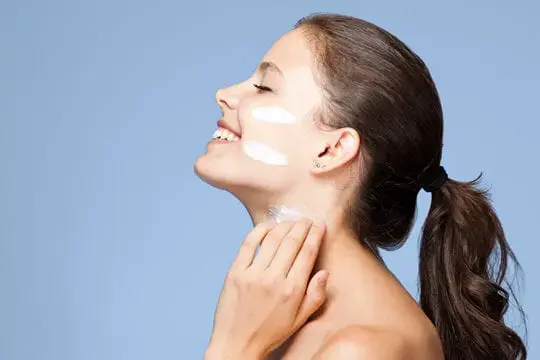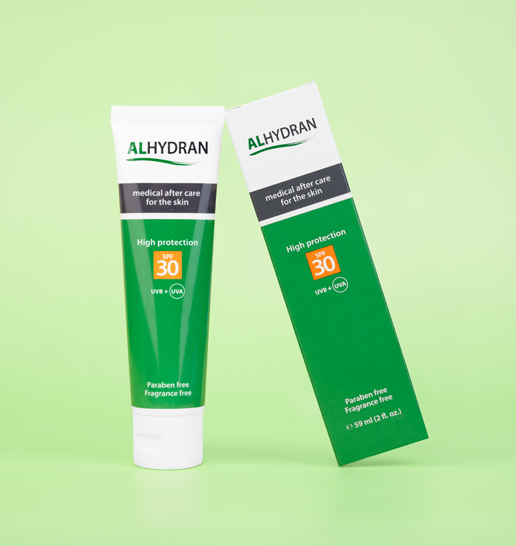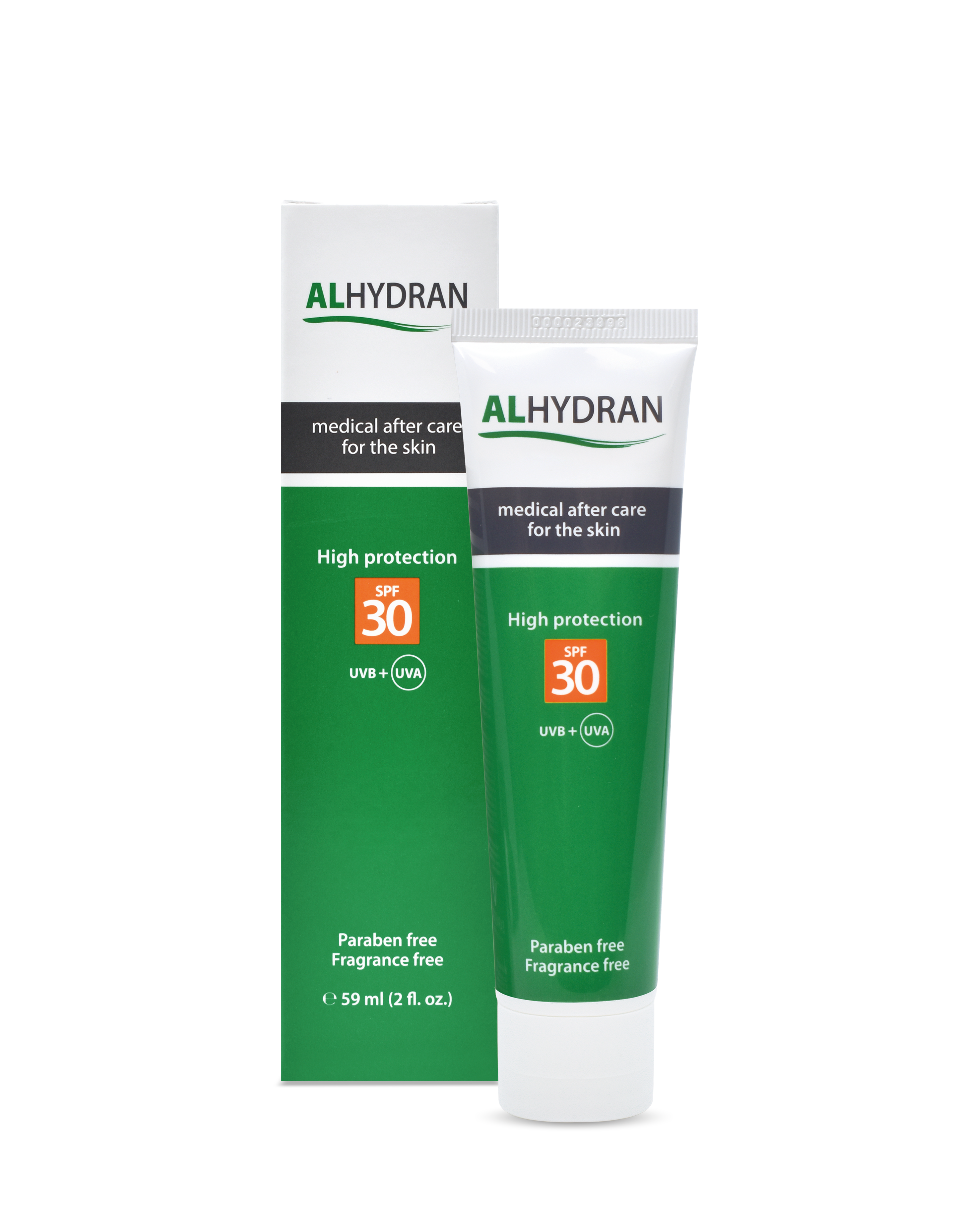Sunburn | Alhydran SPF 30 offers optimal care and UV protection
ALHYDRAN SPF 30 shields skin from UV damage and lowering the risk of skin cancer from sun overexposure
Sun Protection
The disrupted skin barrier must be protected, also against damaging UV rays. On a completely cloudy day 40% of available, damaging UV radiation still reaches the earth.
A disrupted skin barrier will damage more easily:
Having scars or ulcers increases the risk of skin cancer
A scar can sunburn more easily than healthy skin
Sun exposure to a scar can cause permanent color changes
Sun exposure can aggravate the clinical appearance of the scar
Alhydran SPF 30 provides high-level sun protection for your damaged skin.

The three types of burns
High-level Sun Protection
The International Guideline recommends avoiding exposure to the sun and applying a high sun protection factor of 30 (SPF 30).This guideline also recommends using a high sun protection cream as a routine component of postoperative wound care.
The unique effects of ALHYDRAN are available in a variant with high-level sun protection, which provides this protection: ALHYDRAN SPF 30. The unique mix of ingredients ensures optimal treatment and protection of the disrupted skin barrier. Broad Spectrum UVA and UVB protection with a Sun Protection Factor (SPF) of 30.
After-Sun
Prevention is the best option, but a sunburn can occur. A sunburn looks bad (red), it hurts and peels. It causes unpleasant skin complaints, such as itching and a burning sensation, but it can also cause long-lasting damage to the skin.
Therefore, it is important to quickly treat a sunburn. You need to help the skin repair itself as quickly as possible. ALHYDRAN hydrates the damaged skin and helps repair the skin. The Aloe Vera has a cooling effect an reduces the inflammation of the sunburn.
Warning: Do not use ALHYDRAN on open wounds. When the sunburn is severe (with blisters) and covers a large part of your body or when it is accompanied by other health complaints, consult a doctor.
Scars and sun exposure (UV)
New scars should be protected from ultraviolet radiation exposure for at least 12(-24) months. New scar tissue is of inferior functional quality compared to healthy skin and therefore less resistant to UV rays. A sensitive scar is pink and still healing. gradually the scar tissue should begin to react to the sun in the same way as unaffected tissue.
UV light exposure can cause:
Hyperpigmentation (darkening of the skin which can be permanent)
Hypopigmentation (loss of skin pigmentation which can be permanent)
Scar tissue to become more thickened
Aggravated clinical appearance of scars (more noticeable)
Easily sunburn of a new scar

Routine postoperative wound care
In literature the effect of UV radiation on wounds is still poorly understand. Despite this the literature is very clear. Both in literature and in practice, the advice is not to expose wounds to UV light during the healing period, due to the risk of skin cancer, delayed wound healing or scarring and hyperpigmentation.
As up to 40 % of the sun’s ultraviolet radiation reaches the earth on a completely cloudy day, patients should be advised to protect their scar at all times during outdoor activities. Even incidental sun exposure (driving, walking sitting near a window)
Conclusion:
Data confirm the necessity of avoiding sun exposure and using sunscreens as part of routine postoperative wound care.
Frequently asked questions:
Yes, ALHYDRAN is suitable for all skin types. It is hypoallergenic and contains no parabens or aromas.
No side-effects have been reported to date.
UV radiation can be harmful for your scar. UV rays can increase the risk of skin cancer and can cause a scar to become more visible. Until at least one year after wound closure, the advice is to avoid direct exposure to sunlight.
If avoiding sunlight is not possible, it is recommended to use ALHYDRAN SPF 30 (with UV protection). If the scar is not exposed to UV rays, regular ALHYDRAN is sufficient.
So:
1. When the scar is covered by clothing, Use regular ALHYDRAN
2. Scar in the shade or sun (not covered with clothing) Use ALHYDRAN SPF 30 with UV protection.

